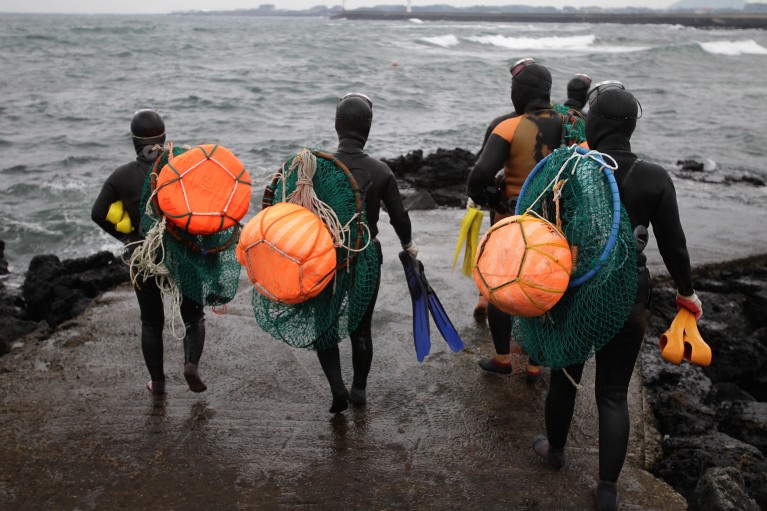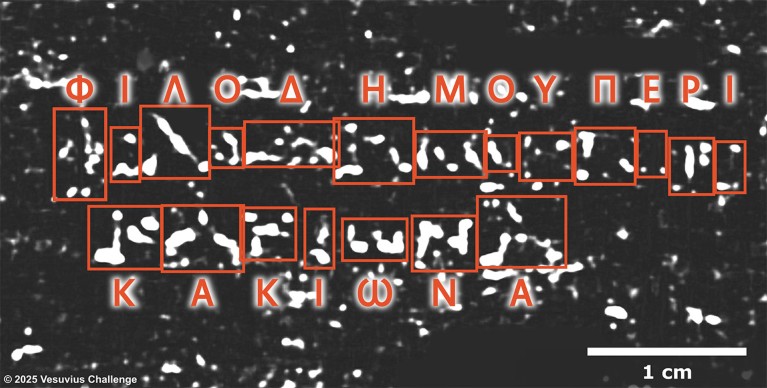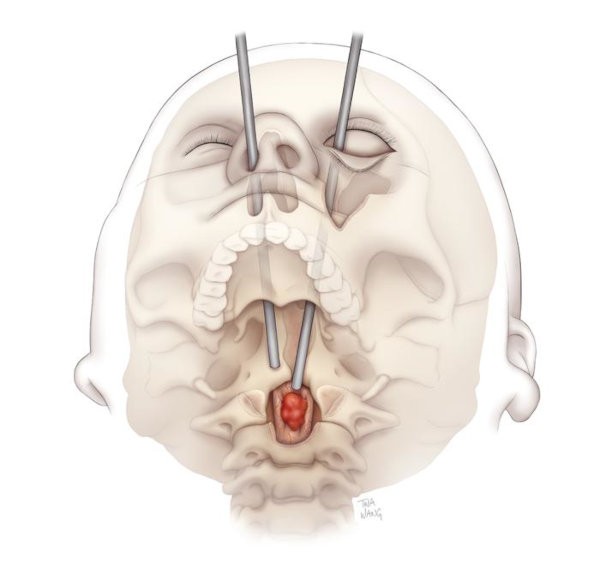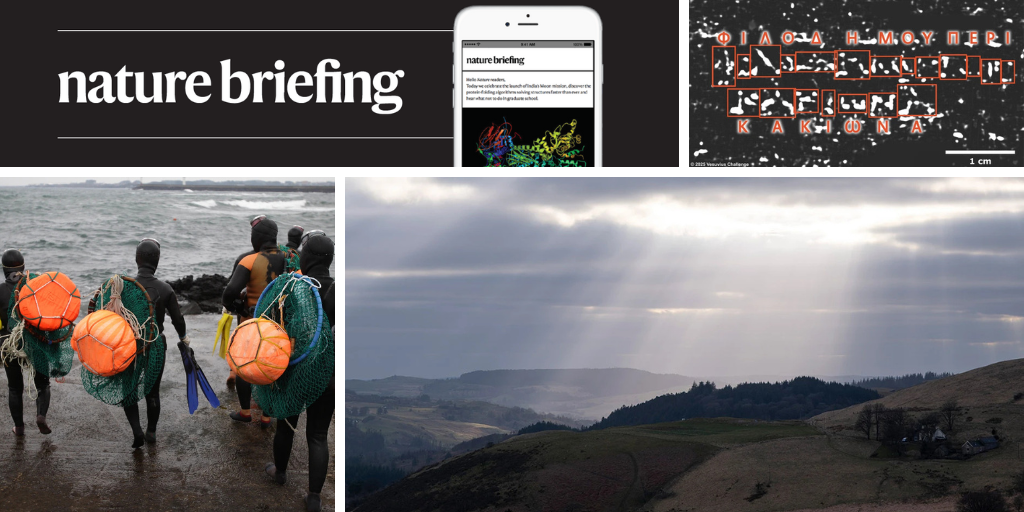You have full access to this article via your institution.
Hello Nature readers, would you like to get this Briefing in your inbox free every day? Sign up here.

South Korea’s all-female Haenyeo divers gather seafood, a tradition that goes back centuries. Credit: Chung Sung-Jun/Getty
A tradition of diving on the South Korean island of Jeju might have influenced the genomes of all of the islanders. The Haenyeo — meaning ‘women of the sea’ — have been cold-water diving year-round and without any breathing apparatus for centuries. A genetic analysis revealed that gene variants associated with reduced blood pressure, cold water tolerance and red blood cell count — which is related to oxygen-carrying capacity — are more common in people from Jeju, regardless of whether they dive themselves, than in other South Koreans.
Reference: Cell Reports paper
The United Kingdom’s high-risk research funder, the Advanced Research and Invention Agency (ARIA), has announced the geoengineering research that it will fund to study how Earth’s climate could be cooled. The projects include small-scale trials to thicken ice sheets with water pumped from underneath and theoretical work on whether a sunshade deployed in space could cool portions of Earth’s surface. But the programme has its critics: climate scientist Michael Mann and physicist Raymond Pierrehumbert argue that it is “a dangerous distraction”.
Nature | 7 min read & The Guardian opinion | 5 min read
Teenagers with mental-health conditions such as anxiety and depression spend more time on social media than their peers and are less happy with aspects of the experience, such as their number of online friends. The results of a survey of adolescents in the United Kingdom are “a good warning to families that if your youth is vulnerable because of anxiety, a tendency to have depression or be low in mood, then social media is something that really needs to be carefully monitored”, says Anne Marie Albano, a clinical child and adolescent psychologist.
Reference: Nature Human Behaviour paper
Image of the week

The Greek letters identify the scroll as part of On Vices by the Greek philosopher Philodemus.Credit: Vesuvius Challenge
Two researchers in the field of machine learning have won US$60,000 for being the first to reveal the title and author of a sealed papyrus scroll carbonized by the eruption of Mount Vesuvius in Italy in ad 79. The crucial lines identify the work as part of On Vices by the Greek philosopher Philodemus. (Nature | 4 min read) (Vesuvius Challenge)
Features & opinion
AI researcher Michael Running Wolf’s work stretches from the Kwakiutl Nation on the northwest Pacific Coast of North America to the home of the Māori in the southwestern Pacific Ocean. As the big AI developers seek out Indigenous-language training data to add valuable complexity to their systems’ corpuses, Running Wolf is creating resources by and for Indigenous communities. Alongside his wife and collaborator Caroline, who speaks 11 languages, he works to restore some of the linguistic tapestry torn by colonial practices and give Indigenous people more control over how their data are used.
Nineteen-year-old Karla Flores has become the first person in the world to have a spinal tumour removed through her eye socket. Lead neurosurgeon Mohamed Labib chose the unusual entry point because it was the best way to access a tumour that was pressing on Flores’s spinal cord near the base of her skull. Even a few millimetres of imprecision could have resulted in a fatal stroke, paralysis below the neck or damage to the eye. Fortunately, the surgery and subsequent radiotherapy was a success, and Flores’s prognosis is “excellent”, says Labib.
The Washington Post | 14 min read

To perform the delicate proceedure, surgeons lowered a drill through the left eye socket and an endoscope through the right nostril. (Tina Wang/University of Maryland Department of Neurosurgery)
Today I’m delighted to learn that one of my favourite reading pleasures — the obituaries — has a fringe benefit. Creativity researcher Yoed Kenett says that breaking out of our bubbles and learning about other people’s lives and interests — which are sometimes very different to our own — helps to stimulate new ideas.
A recent obit I found memorable is this one, of neurologist Francisco Lopera, who traced the trail of Alzheimer’s disease through the family trees of communities in his native Colombia.
I’d love to read your favourite obituaries and interesting life stories — plus any feedback on this newsletter — at [email protected].
Thanks for reading,
Flora Graham, senior editor, Nature Briefing
With contributions by Jacob Smith, Felicity Nelson and Katharine Sanderson
Want more? Sign up to our other free Nature Briefing newsletters:
• Nature Briefing: Careers — insights, advice and award-winning journalism to help you optimize your working life
• Nature Briefing: Microbiology — the most abundant living entities on our planet — microorganisms — and the role they play in health, the environment and food systems
• Nature Briefing: Anthropocene — climate change, biodiversity, sustainability and geoengineering
• Nature Briefing: AI & Robotics — 100% written by humans, of course
• Nature Briefing: Cancer — a weekly newsletter written with cancer researchers in mind
• Nature Briefing: Translational Research — covers biotechnology, drug discovery and pharma


